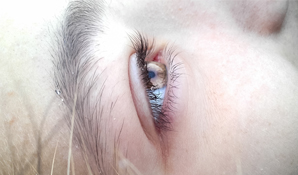By the time most of us are adults, we have acquired a whole lifetime of bad habits, like drinking too much caffeine and eating processed food, and lost many of the good ones we had when we were younger – like staying active. These bad habits expose us to a heightened risk of developing so-called “lifestyle diseases” – diseases that mostly could have been avoided by changing our lifestyles. Once these diseases have taken hold, they can be difficult to treat or reverse, resulting in a lifetime of medical interventions and the associated expenses.
We spoke to Isabel Thompson, a Johannesburg GP, about the risks associated with “living the good life” and her recommendations for living a better one.
You eat badlyA poor diet – one that is high in processed foods, animal proteins, simple carbohydrates, sugars and bad fats – can lead to everything from heart disease to diabetes to some kinds of cancer. Never mind the long-term effects, in the short term, a poor diet will leave you lethargic and unfocused. You are what you eat, so start eating to become the best person you can be.
The doctor recommends: You probably already know what’s good for you and what isn’t. Start by shopping for healthy foods – so that when you cook, there’s no junk to be had. Make sure that everything you buy is something your grandmother would recognise (processed foods are a modern invention). And find a healthy eating plan that works for you, so that you’ll stick to it.
You never exerciseA sedentary existence can cause obesity, hypertension, heart disease, diabetes, muscular and skeletal discomfort and fragility, stress and depression. Again, you know you should be exercising, but it can be very hard to find the time and motivation.
The doctor recommends: Contrary to what many people think, it’s not actually essential to work out with weights and cardio at the gym for an hour every morning until you are red in the face. In fact, that’s what puts a lot of people off exercise. Instead, find something moderately active that you love doing, and do that regularly.
You drink too much alcohol Alcohol use and abuse can affect your quality of life, leading to hangovers and depression in the wake of a binge. In combination with poor diet and no exercise, it can also lead to fatty liver disease, which affects your quality of life by making you lethargic, weak and confused, and can lead to further complications if not carefully managed.
The doctor recommends: It’s fine to drink in moderation – with the “safe” guideline being six units a week. But bear in mind that some people can drink a bottle of wine with no after-effects and others struggle the next day after one or two glasses. You may also have heard of studies that show that red wine lowers cholesterol. It’s best to take those studies with a pinch of salt (or not, if you’re aiming for good health), and just remember that moderation in all things is the way to go.
You smoke cigarettesSmoking causes cancer, osteoporosis, asthma, chronic obstructive pulmonary disease (COPD), sinusitis and asthma (for yourself and for those who live with you – even if you go outside to smoke).
The doctor recommends: Don’t smoke. At all.
You eat too much sugar Sugar is toxic. The calories it gives you are empty – meaning they have no nutrients – and it damages your teeth and liver, and can lead to diabetes and obesity. As a society, we are addicted to sugar, and we need to find ways of reducing our reliance on it.
The doctor recommends: Try to cut back on every source of sugar you have access to – whether it’s in your tea, a soft drink or a daily chocolate from the office vending machine. Of course, you can allow yourself the occasional treat, but once a week is more than enough. And don’t substitute with toxic sweeteners either – the idea is to wean yourself off your taste for sweetness altogether.
You drink too much coffeeCaffeine causes anxiety, heart palpitations and a lack of sleep. Its biggest affect is on your quality of life, as many coffee drinkers don’t realise – or accept – that their favourite beverage is the cause of their anxiety or the reason that they can’t sleep at night.
The doctor recommends: Assess your own tolerance for caffeine, and if you are having negative reactions, cut back. Remember that as you grow older, your tolerance can go down, so when you’re forty, you might not be able to manage two cappuccinos in the afternoon and another after dinner like you did when you were a student.
You’re too stressed and you don’t get enough sleepAlthough stress and lack of sleep are two separate points, they are often intertwined, so we’ve listed them together. Both can cause exhaustion, obesity, hypertension and diabetes, but the society in which we live has created the belief that we should thrive on stress and need very little sleep or we’re not achieving anything.
The doctor recommends: Don’t get caught in the trap of believing that you don’t need that much sleep or that stress is what motivates you. You have to find ways to wind down and find peace so that you get a good night’s sleep and wake up feeling rested and ready to take on new challenges. Eight hours of sleep a night is generally recommended, but people are different from each other. Try to identify how much you need to leave you feeling rested when you aren’t stressed, and don’t skimp on that when you are.
For stress, try to find an activity that calms you – like yoga or meditation – and make space for that in your life. If the demands on your time and energy are too high, consider seeing a therapist or life coach about better time and money management, to get all your stress factors back under control.
Change your life, today! Making a change is one of the hardest things a person can do, but the benefits of a healthy lifestyle make it all worthwhile, while the costs of being unhealthy are prohibitive. Everyone is different, so have a look at your problem areas – you know what they are – and take the doctor’s advice for tackling them, one at a time.




